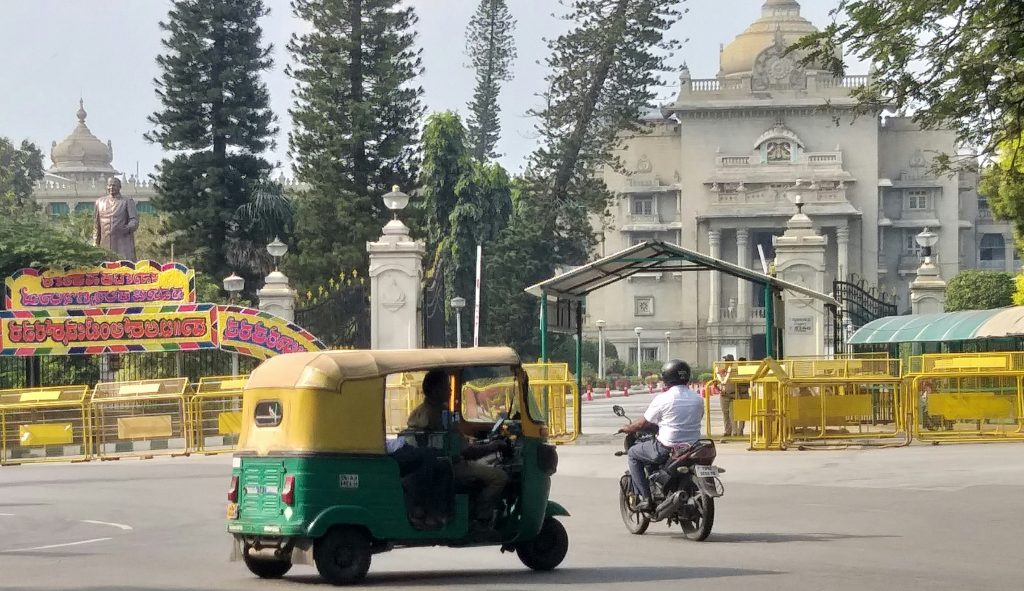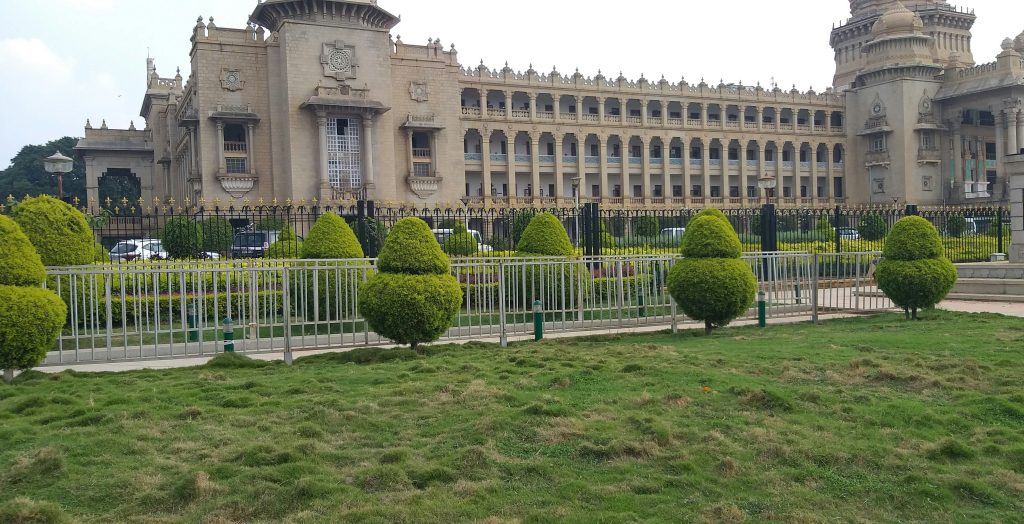Minnesota’s Vibrant Community Engagement and Conservation Efforts Shine
In a state known for its stunning natural landscapes and rich community spirit, Minnesota continues to showcase significant initiatives aimed at promoting health, conservation, and community engagement. One of the standout efforts is spearheaded by the Susan G. Komen Foundation, which has launched a new initiative encouraging participants to walk varying distances of 20, 40, or 60 miles. This initiative not only aims to raise vital funds for breast cancer awareness and research but also fosters a sense of unity among participants. Walking together in the heart of Minnesota’s picturesque settings, participants embody the spirit of resilience and hope.
Meanwhile, the state’s real estate market is witnessing exciting developments as Lennar, a prominent homebuilder, announces its expansion into Rochester. This move comes as the city continues to grow rapidly, attracting new residents and businesses alike. With new homes on the horizon, Rochester is set to enhance its appeal as a desirable place to live, further enriching the local economy and community life.
In the realm of outdoor activities, Minnesota’s rich wildlife continues to attract enthusiasts. Recent data reveals that of the bull elk harvested this year, a mix of public and private land contributions played a role in the hunting statistics. This balance highlights the importance of responsible hunting practices and conservation efforts, ensuring that both wildlife and community interests are respected.
Additionally, the Minnesota Department of Natural Resources (DNR) has recently conducted a comprehensive survey among waterfowl stamp holders across the state. With over 4,000 participants targeted, the response rate of 1,257 illustrates a strong interest in the state’s waterfowl populations and the health of the ecosystems they inhabit. Such surveys are critical in shaping future conservation strategies and ensuring that Minnesota’s natural resources are preserved for generations to come.
On the athletic front, excitement is building as Minnesota State University in Mankato prepares for its annual Homecoming Game. This event not only serves as a thrilling sports occasion but also reinforces the strong sense of community among students, alumni, and local residents. The matchup against the Sioux Falls Cougars promises to deliver an electrifying atmosphere, celebrating school spirit and camaraderie.
As these initiatives unfold across Minnesota, they paint a vibrant picture of a state committed to improving public health, fostering community spirit, and protecting its rich natural heritage. Minnesota stands as a testament to how local efforts can lead to significant change, inspiring residents to engage actively in their communities while respecting the environment. With continued participation and support, the state can look forward to a future where health, conservation, and community thrive together.
Tags: community engagement, conservation, Minnesota, outdoor activities, real estate
Weather Delays Season Opener as UNC Faces Minnesota in 2024 Football Kickoff
In a highly anticipated matchup to kick off the 2024 college football season, the North Carolina Tar Heels were set to face the Minnesota Golden Gophers. However, the excitement was briefly dampened as inclement weather forced a delay in the kickoff time. Originally scheduled for an earlier time, the game at Huntington Bank Stadium in Minneapolis has now been pushed back to 9 p.m. EST/8 p.m. CST. This marks a significant moment for the Tar Heels, as it will be their first-ever visit to Minnesota, adding to the historical significance of the event. As the teams prepare to take the field, all eyes are on North Carolina’s quarterback, Max Johnson, who suffered an injury during the game, raising concerns about his performance and the team’s strategy moving forward. This clash between the Atlantic Coast Conference (ACC) and Big Ten teams is more than just a game; it’s a showcase of talent and a chance for both programs to make a statement early in the season. Fans from both sides are eagerly awaiting the rescheduled kickoff, hoping for a thrilling start to this new chapter in college football. With the weather now clearing, anticipation builds for what promises to be an electrifying opener for both teams. The delay may have changed the schedule, but it has not dampened the spirit of the game, as fans remain hopeful for a competitive showdown. As the Tar Heels and the Golden Gophers prepare to take the field, the stakes have never been higher, and the atmosphere is charged with excitement. Will the Tar Heels secure a victory in their inaugural game in Minnesota? Only time will tell, but one thing is certain: this game will be one for the history books.
Tags: College Sports, Football, Minnesota, minnesota football, north carolina football, season opener, UNC, UNC football, weather delay
Minnesota’s Economic Growth Outpaces Wisconsin Under Tim Walz’s Leadership
In recent years, Minnesota has emerged as a beacon of economic growth, significantly outpacing its neighbor Wisconsin. Over a span of seven years, the state’s economy expanded by an impressive 11%, while Wisconsin saw a comparatively modest growth of 8%. This economic surge has been accompanied by a substantial increase in wages, which rose by 9.7% in Minnesota compared to just 6.4% in Wisconsin. Such figures highlight the effectiveness of the policies implemented under the leadership of Governor Tim Walz, who has focused on fostering a business-friendly environment and investing in key sectors.
The growth in Minnesota’s economy can be attributed to several factors. The state has prioritized innovation and technology, attracting businesses and talent from various industries. This approach has not only stimulated job creation but has also enhanced the overall quality of life for its residents. Furthermore, Minnesota’s commitment to education and workforce development has equipped its labor force with the necessary skills to meet the demands of a rapidly changing economy.
While Minnesota thrives, Wisconsin faces challenges that could hinder its economic progress. Analysts point to the need for strategic investments in infrastructure and workforce development in Wisconsin to keep pace with its neighbor. The contrast in economic performance between the two states serves as a critical lesson for policymakers, emphasizing the importance of forward-thinking strategies in fostering sustainable growth.
As the economy continues to evolve, Minnesota’s success story under Governor Walz serves as an inspiration for states across the nation. By focusing on inclusive growth and prioritizing key sectors, Minnesota has demonstrated that a collaborative approach can yield substantial benefits for its citizens. Moving forward, it will be essential for state leaders to learn from Minnesota’s experience and implement effective policies that promote economic resilience and prosperity for all.
Tags: economic growth, Minnesota, Tim Walz, Tim Walz Minnesota
Minnesota Primary Elections Ignite Interest in Local Council Races
As the 2024 Minnesota primary elections approach, eyes are increasingly focused on the city council races, particularly in Brooklyn Park’s Central Ward and Brooklyn Center. These local contests are not just about filling seats; they represent a microcosm of broader political dynamics, reflecting the community’s priorities and challenges.
This year, the stakes are high. The city council elections are crucial for shaping policies that directly impact residents’ lives, from public safety to housing and education. In Brooklyn Park, the Central Ward has seen a surge in candidate interest, with a diverse array of individuals stepping forward to represent their constituents. This influx of candidates has sparked lively debates and discussions, bringing issues such as community safety, infrastructure improvements, and economic development to the forefront of the campaign trail.
Meanwhile, in Brooklyn Center, the city council race is equally competitive, with candidates vying to address local concerns that have been amplified in recent years. The community is grappling with significant challenges, including the aftermath of civil unrest and ongoing discussions about community policing and equity. The candidates are not only focused on traditional campaign strategies but are also leaning into grassroots efforts, hosting town halls, and engaging directly with voters to foster a sense of community involvement and transparency.
Voter engagement is a key theme this election cycle. Local organizations and community groups have ramped up efforts to educate residents about the voting process, emphasizing the importance of participation in primaries. They are working diligently to ensure that all voices are heard, particularly those from historically underrepresented communities. The emphasis on voter outreach is critical in a state that prides itself on high voter turnout and civic engagement.
Moreover, the Minnesota primary elections are shining a light on the increasing importance of local governance in the political landscape. As national issues often dominate headlines, local councils play a vital role in addressing the immediate concerns of residents. The outcomes of these elections will not only determine the makeup of the councils but will also influence policy decisions that affect the daily lives of countless individuals.
As the election date approaches, candidates are intensifying their campaigns, showcasing their platforms through various media channels and community outreach initiatives. This year’s primaries are expected to set the stage for a vibrant electoral season leading up to the general elections in November. The heightened interest in local races is a testament to the evolving nature of political engagement, where community members are more informed and involved than ever before.
In summary, the 2024 Minnesota primary elections are poised to be a pivotal moment for Brooklyn Park’s Central Ward and Brooklyn Center. With a diverse range of candidates and critical issues at stake, these elections are not just about selecting representatives; they are about shaping the future of the communities. As voters prepare to head to the polls, the emphasis on participation and engagement may very well redefine local political landscapes, making this primary season one to watch.
Tags: City Council, community engagement, Minnesota, Minnesota primary, Primary Elections
Minnesota Senate Primaries Showcase Strong Incumbent Support and New Faces for November
On August 13, Minnesotans flocked to the polls to cast their votes in what has been anticipated as a pivotal primary election for the U.S. Senate. With a field of candidates vying for the Democratic and Republican nominations, the results reflect both the enduring strength of incumbents and the rise of new challengers.
Senator Amy Klobuchar, a prominent figure in Minnesota politics, is seeking a fourth term in office. Her campaign has benefitted from widespread name recognition and a solid base of support, which was evident in the primary results. Klobuchar’s ability to connect with voters and her established presence in the Senate appear to have resonated well, as she secured a comfortable lead in the Democratic primary, garnering over 90% of the votes cast.
Meanwhile, the Republican primary brought unexpected developments as Royce White, a former professional basketball player, emerged victorious. White’s win marks a significant moment for the GOP in Minnesota, as he represents a more populist and unconventional approach to politics, contrasting with the traditional Republican candidates who also competed. His victory reflects a shift within the party, as grassroots movements continue to influence Republican primaries across the nation.
Political analysts have noted the mixed outcomes for Republican candidates, as while White succeeded, other more traditional candidates managed to hold their ground in various races. This split indicates a party grappling with its identity and the direction it wishes to take moving forward. The results of the primary not only set the stage for the November elections but also highlight the internal dynamics at play within the Republican Party in Minnesota.
As the dust settles from the primary, attention now turns to the general election. Klobuchar is expected to leverage her legislative accomplishments and commitment to Minnesota’s needs as she campaigns against White. The matchup between an established incumbent and a fresh challenger has the potential to draw significant voter interest and engagement.
In the wake of the primary results, voters are left pondering what these outcomes mean for the future of Minnesota politics. The primary has illuminated the contrasting visions within the two parties: one focused on continuity and experience, and the other on change and new perspectives. With the November election approaching, both Klobuchar and White will need to mobilize their respective bases while appealing to undecided voters, which could prove crucial in a state known for its competitive races.
As Minnesota prepares for what promises to be a closely watched election, the implications of the primary results will undoubtedly shape the strategies employed by candidates as they work to connect with constituents and address the pressing issues facing the state and the nation. From healthcare to economic recovery, the stakes are high, and the conversations that emerge from this election cycle will resonate well beyond the borders of Minnesota.
The Minnesota primary results serve as a microcosm of larger national trends, reflecting the evolving landscape of American politics. Voter engagement remains a critical component, as the electorate shifts and adapts to the candidates’ platforms. The coming months will be pivotal as candidates refine their messages and strategies to capture the hearts and minds of Minnesota voters in November.
Tags: Election 2023, Minnesota, Minnesota primary results, Senate Primaries
Ilhan Omar Triumphs in Primary Election, Solidifying Her Position in Minnesota Politics
In a fiercely contested primary election on Tuesday, Representative Ilhan Omar emerged victorious, successfully defending her seat in Minnesota’s 5th Congressional District. Omar’s win is particularly significant as it comes amidst a turbulent political landscape for progressive lawmakers, several of whom have faced considerable challenges in recent primaries. Omar’s opponent, former Minneapolis City Council member Don Samuels, campaigned with a centrist approach, contrasting Omar’s progressive policies. Despite the heightened stakes, Omar’s race did not attract the same level of outside financial influence that has characterized other primaries for members of the so-called ‘Squad.’ This factor may have played a crucial role in her victory, allowing her to maintain a more grassroots campaign. Omar’s win not only secures her position but also signals a continued commitment from her constituents to progressive values in the face of increasing political polarization. As she prepares for the general election, Omar’s supporters express optimism about her ability to continue advocating for issues such as social justice, healthcare reform, and immigration rights. Her successful campaign strategy and the support from her community highlight the importance of local engagement in political contests. This victory reinforces the narrative of resilience among progressive candidates, particularly in areas where they have faced significant pushback. As the political landscape evolves, Omar’s role becomes increasingly vital, serving as a beacon for those who seek representation aligned with progressive ideals. Her journey reflects the broader narrative of the challenges and triumphs faced by women of color in politics, emphasizing the need for diversity and representation in legislative bodies. Looking ahead, the implications of this primary extend beyond Omar’s personal ambitions; they resonate with the broader fight for progressive change within the Democratic Party. As the nation watches, Omar’s leadership will undoubtedly continue to influence the dialogue surrounding equity and justice in American politics.
Tags: Ilhan Omar, Ilhan Omar primary, Minnesota, Primary Election, progressive politics
Tim Walz: The Rising Star of the Democratic Ticket
In a significant political development, Minnesota Governor Tim Walz has stepped into the national spotlight as he joins Vice President Kamala Harris on the Democratic presidential ticket. This unexpected pairing has captured the attention of political analysts and voters alike, as Walz’s authentic and progressive voice resonates with many across the nation.
Walz, who previously served in Congress representing a traditionally Republican district, has made a name for himself as a pragmatic leader with a focus on unity. His tenure as governor has been marked by his ability to address complex issues while maintaining a relatable presence. At a recent rally in Pennsylvania, he joined Harris on stage, where they rallied supporters against their Republican opponents, emphasizing the importance of winning swing states like Pennsylvania in the upcoming election.
Critics have raised concerns regarding Walz’s handling of a significant COVID-19 fraud scheme during his time as governor. However, his supporters argue that his leadership during the pandemic, including the implementation of health measures and support for economic recovery, showcases his commitment to the welfare of Minnesotans.
As the Democratic ticket looks to solidify its stance on pressing issues, Walz’s experience in both education and public service positions him as a candidate who can connect with voters on a deeper level. His background as a former civics teacher adds a unique perspective to the conversation about government reform and civic engagement.
The recent announcement has prompted discussions about the Democratic Party’s approach to foreign policy, particularly in light of ongoing global tensions. As Walz and Harris prepare for the campaign trail, their positions on issues such as the Israel-Palestine conflict, relations with Russia and Ukraine, and strategies regarding China will be closely scrutinized.
Walz’s rise to prominence has been a point of amusement for some on the political left, who see his ability to articulate progressive ideas with authenticity as a refreshing change. His journey from a lesser-known state governor to a key player on the national stage exemplifies the shifting dynamics within the Democratic Party, as they seek to appeal to a broader electorate.
As the election approaches, Walz’s ability to draw in voters from diverse backgrounds may prove crucial for the Democratic campaign. With his military service and personal story, he embodies the values of resilience and determination that resonate with many Americans. Both he and Harris are set to make a concerted effort to connect with voters, emphasizing a message of hope and progress.
In conclusion, Tim Walz’s selection as Kamala Harris’s running mate marks a pivotal moment for the Democratic Party. His authentic leadership style, combined with a progressive agenda, positions him as a formidable candidate capable of galvanizing support across the country. As they embark on this electoral journey together, the nation will be watching closely to see how this dynamic duo navigates the complexities of the political landscape and strives to unite voters in pursuit of a common goal.
Tags: Democratic Party, Election 2024, Kamala Harris, Minnesota, Minnesota Governor, Tim Walz, Walz
Peggy Flanagan: Pioneering Path to Historic Governance in Minnesota
As the political landscape shifts, Minnesota is on the brink of potentially historic changes. If Kamala Harris, alongside Minnesota Governor Tim Walz, secures victory in the upcoming election, the state could witness a groundbreaking moment in its governance history. At the forefront of this change is Lieutenant Governor Peggy Flanagan, who stands poised to assume the role of governor in an unprecedented scenario.
Flanagan, a proud member of the White Earth Band of Ojibwe, has already made significant strides as lieutenant governor, championing initiatives that foster collaboration between state officials and tribal leaders across Minnesota’s 11 tribal nations. Her commitment to inclusivity and representation has made her a pivotal figure in advocating for Native American issues and ensuring their voices are heard within the governmental framework.
If elected, Flanagan would not only be the first female governor of Minnesota but also the first Native American woman to hold a gubernatorial position in the United States. This milestone represents a significant leap towards representation in American politics, offering hope and inspiration to many who have historically been marginalized in the political arena.
The prospect of Flanagan’s ascension to the governorship highlights the increasing importance of diverse leadership in addressing the complex challenges that face modern governance. Her track record shows that she is not only a vocal advocate for her community but also a capable leader dedicated to the welfare of all Minnesotans.
As discussions around her potential governorship gain momentum, it is essential to recognize the broader implications of her leadership. Flanagan’s rise symbolizes a shift towards more representative governance and a commitment to inclusivity that resonates across various sectors of society.
In her tenure as lieutenant governor, Flanagan has focused on building bridges and fostering partnerships, which are crucial in a state characterized by its diversity. Her efforts to engage with tribal nations reflect a broader understanding of the need for collaboration in governance, particularly in matters impacting Indigenous communities.
Beyond the immediate political implications, Flanagan’s leadership could pave the way for future generations of leaders who come from diverse backgrounds. It encourages young women and people of color to aspire to leadership positions, knowing that the barriers to entry are gradually being dismantled.
The potential election of this dynamic leadership duo could not only reshape Minnesota’s political landscape but also redefine the narrative around who can lead in America. As the nation watches closely, the outcome of this election may become a defining moment for future political representation.
With the election around the corner, it is clear that the stakes are high. The impact of this political shift could reverberate far beyond Minnesota, influencing conversations about leadership, representation, and the importance of diversity in governance across the country. As Peggy Flanagan stands on the threshold of potentially making history, her story serves as a reminder of the progress that can be achieved when diverse voices are given a platform to lead.
Tags: Diversity, Minnesota, Peggy Flanagan, Representation







